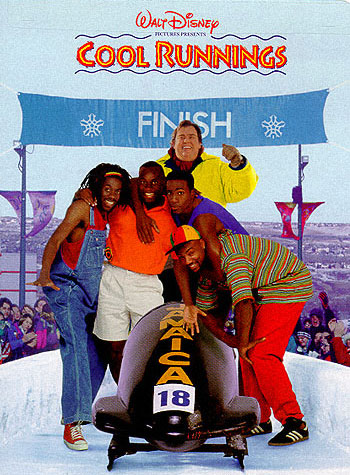To follow up on my earlier post on Avatar (and like my post on the underpants bomber, it seems I’m a step behind the crowd on this topic), I’ve broken up my internal system for grading movies into three simple tests.
1. The First Name Test. Unbelievably, Bill Simmons beat me to the punch and wrote about this very notion just yesterday. From his article:
If you saw “Invictus” already, ask yourself these questions: Can you remember the name of one guy on South Africa’s rugby team other than Damon’s character? (I bet you can’t.) Can you remember the name of the coach? (You definitely can’t — we were apparently expected to believe this team coached itself.) … Did you learn ANYTHING about the team’s one black player, who should have been just as compelling a character as Pienaar? (Nope. I can’t even remember his name.)
Very simple: I’m looking for a compelling character with an engaging and unique story. And call me crazy, but if I can’t even remember the name of the main characters, I find it hard to believe that the movie was worth its salt.
Excellent example: Old School versus Wedding Crashers. Do you think (assuming you’re not a Vaughn/Wilsons/Stiller/etc. fanatic) you could name any of the central characters from Old School? You should have answered Frank (Frank the Tank!) fairly easily. Possibly Mitch (Mitch-a-Palooza) and Blue (you’re my boy!), too. Now, how about Wedding Crashers? I mean, I know Vince Vaughn, Owen Wilson, and Christopher Walken were in the movie. But didn’t they effectively play themselves?
Old School passes. Wedding Crashers, even if it didn’t have the soppy, cringe-inducing, awkward sequence at Vince’s wedding near the end, is a bust.
Do note – the first name requirement isn’t necessarily black & white. Consider that, in Fight Club, we go 85% of the movie before realizing that Tyler Durden’s name is Tyler Durden. How fantastic, realizing upon watching Fight Club for the first time, that you had never learned Tyler’s name! Sometimes a movie is strong enough on its own that the first name test can slide (and we’ll get to this). Or you’ll find the character memorable enough thanks to all of his other defining qualities that his name gets lost. Think: Brad Pitt’s lead in Inglourious Basterds. You know who Lt. Aldo Raine is as a protagonist via his distinguished mustache and delightful enunciation “naht-zis,” even though I feel his name gets muddled up (probably due to the very same heavy accent). Heck – I had to look the name up on IMDB, and I only just saw the movie yesterday.
Double note – Bonus points for characters that I can identify with on a personal level.
For posterity’s sake, I’ll give this test a weight of two points.
2. The Callback & Re-Watchability Test. Many possibilities: First, I love it when a movie plays such fine attention to detail that it’s able to turn seemingly irrelevant details from earlier in the movie into significant plot devices. Think: The ending to Citizen Kane (I really hesitate to post a spoiler here). Or the ending to The Girl Next Door.
Second: I love being able to watch a movie for the second time, and pick up revealing details along the way that make repeated viewings just as enjoyable. Think about Bruce Willis’ interactions with people throughout The Sixth Sense. Or consider Back to the Future, where things happen like the name of the mall in 1985 changing from “Twin Pines Mall” to “Lone Pine Mall” after Marty knocks over a pine tree in 1955. Great Scott!
Third: It’s of utmost importance that the movie have some line in the script that I can quote or riff about with my friends. Again: Great Scott!
Back to the Future passes. The Sixth Sense gets half credit, because Shyamalan had to go through a montage to highlight all of the subtleties (and should lose its half credit at that, after his success with Sixth Sense led to so many other awful works).
For posterity’s sake, I’ll give this test a weight of two points.
3. The Suspended Disbelief Test. Far and away the most important test, and if you really wanted to, you could make this test on its own the metric for evaluating movie quality. To pass here, a movie must simply occupy my undivided attention for its entirety. Shouldn’t that be easy? Isn’t the whole purpose of movie-watching to escape from present reality? I’d say so.
The problem is: nobody’s perfect. Not every director can catch and correct every single minute detail, or contour his work to my perception of what’s reasonable. An exceptional movie will completely ace it. An equally exceptional movie might blow it – but I’ll be so caught up with everything else that it won’t matter.
Perfect example: The Dark Knight. Cracked.com hits the nail on the head, and I’ll quote:
[The Joker plans] “First, we find two empty buildings. Without the cops noticing, we’ll secretly sneak in hundreds of drums of explosive liquids, and wire all of them to explode. Next, we’ll orchestrate an attack on the convoy transporting Harvey Dent. This will involve blocking busy streets, blowing police helicopters out of the air and launching missiles at the armored car. All of this will be done, not to kill Dent (though that could happen at any moment) but to cause Batman to intervene so that he will throw me in jail.
Then, while the whole town is on alert, we go ahead and have our henchmen kidnap both Dent and Rachel Dawes and strap them in with the bombs in the two abandoned buildings. Then I’ll send Batman after one of them, knowing that this will result in Rachel being killed and Dent being a certain distance from the explosion as to become grotesquely injured and disillusioned. Then I’ll blow up the jail without accidentally killing myself. Gentlemen, it couldn’t be simpler.“
Did it ever occur to you how obscenely asinine this plot is? Even once? But what’s more important: Does it even bother you now? No way! Who cares! Everything else going on the movie was so far-and-above absolutely freaking phenomenal, that knowing full-well how unrealistic this part of the plot was doesn’t affect my opinion of the movie in the slightest.
Without a doubt, Dark Knight passes.
For posterity’s sake, I’ll give this test a weight of seven points. (What, like you didn’t expect this to add up to eleven? Details! Test 2! Stick with the program!)
///
Some quick examples:
The Dark Knight: 2 (The Joker!) + 2 (“Where are they!?”, “Why so serious?”) + 7 (see above) = 11/11
Back to the Future: 2 (Doc!) + 2 (“Great Scott!”, “Hello, Butthead!”, Lone Pine Mall, ad infinitum) + 7 (without saying) = 11/11
Old School: 2 (Frank the Tank!) + 2 (Frank the Tank!) + 5 (The valedictorian just likes to carry a voice recorder around? Curious. The frat doesn’t get in trouble for a brother dying at a frat party? Who cares!) = 9/11
Wedding Crashers: 0 (everyone’s playing themselves) + 2 (I don’t love the movie, but I’d settle on it if I was stuck channel surfing) + 0 (What happened to crashing weddings? Shouldn’t the title be “Weekend at Christopher Walken’s house? And again – the wedding scene at the end is horrendously contrived and nausea-inducing). = 2/11
Avatar: 0 (Stereotypical angry military guy with scars!) + .5 (I thought “Daisy Cutters” was funny, but that’s only really because I thought it was some kind of silly expletive, and not a military weapon) + 0 (Unobtainium? Papyrus font? Armored-helicopter-piercing bow & arrows? The protagonist asking the natives to unitedly help his sick friend after their home, king, and half of the population was just nuked to hell? Nobody else was put off by any of this??) = 0.5/11
///
Two other notes:
1. When applicable, test scores can overflow their alloted weights. But overall score never goes above eleven.
2. A perfect score isn’t that hard to come by (and shouldn’t be!). Nonsensical to nit-pick at details and percentiles and such, and wonder whether Shawshank Redemption was better than The Godfather. There’s my wheelhouse of personal favorites, there’s good movies, there’s mediocre movies, and then there’s Avatar.
(heck – I had to look the name up on IMDB, and I only just saw the movie yesterday),





